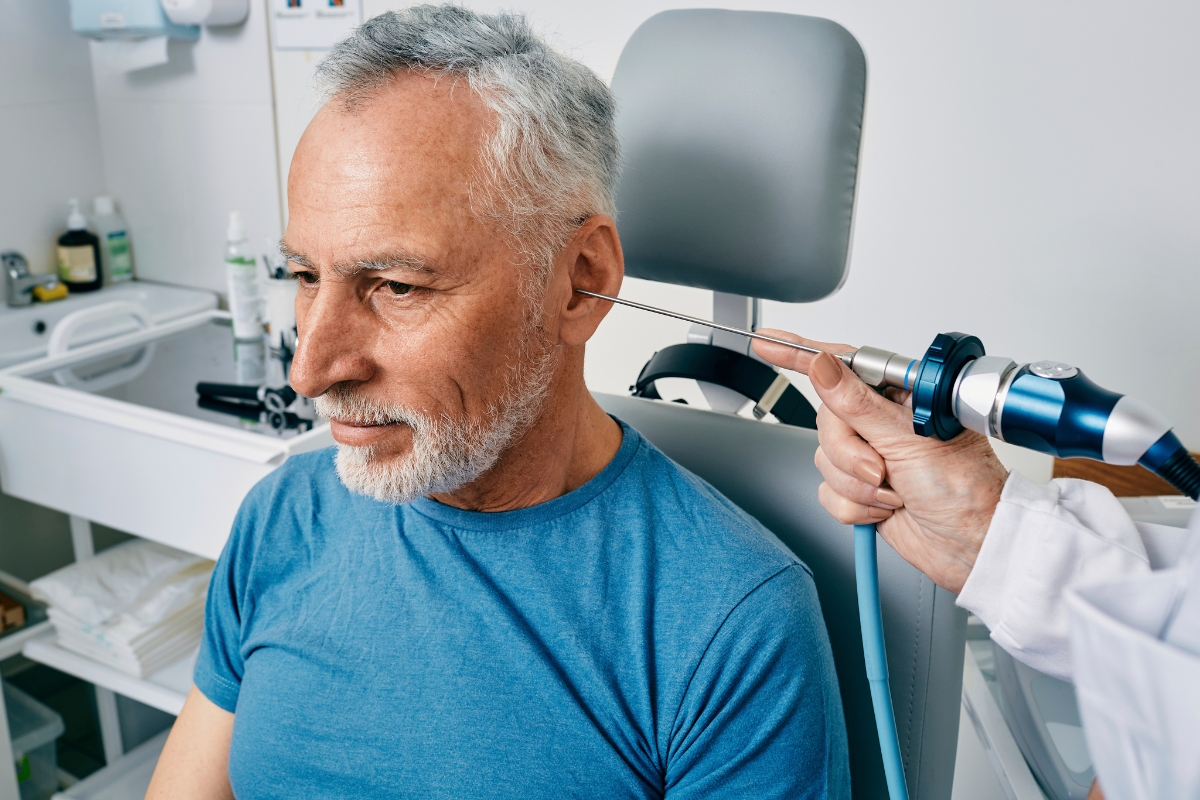How to Have Holiday Happy Ears!
Did you know that every year many people return from their long-awaited and well-deserved holiday in the sun with an ear infection or blocked ears? Senior Audiologist at The Audiology Academy, Sarah Riches discusses why this can happen and advises how to look after your ears on your summer break.

Picture this….you’ve survived the endless packing, the 5am alarm, the unfathomable queues at the airport, the anxious security checks, the flight with the screaming child (who is not even yours!), the white-knuckle transfer to your hotel with the wannabe Formula 1 driver, the hotel key card that doesn’t work first time, the air-conditioning that requires a PhD in Climate Control to master, and you are FINALLY relaxing on a warm sunny beach. The sun is bathing your face and body and the soothing sounds of the sea and the birds surround you. You’re reluctant to move, but you’re starting to feel a little too warm now, and you fear you might be about to become a trifle crispy, so you decide to go and cool off in the water. Sounds blissful, doesn’t it?
However, your ears may be at risk on holiday due to the changes in climate, a change in your usual activities, and even your diet. Sarah explains how to look after your ears while you are away.
Tips for healthy holiday ears:
Before you go:
Dewax: If you already have a build-up of wax in your ears this can lead to discomfort on the plane when the air pressure changes during the flight. In addition to this, sea or swimming pool water trapped behind a plug of wax may easily become stagnant which encourages bacteria and fungus to grow. Add a warm and humid environment and you have the perfect recipe for an infection which may only affect the outer ear or could travel further into the ear causing more complications. Therefore, ensuring sure your ears are clear of wax reduces the risk of infections significantly. Softening ear wax for a few days with an olive oil preparation such as Earol spray is recommended prior to wax removal to make the process more effective and comfortable.1
Decongest: Consider the use of antihistamines and decongestants if you know you have allergies or sinus issues, particularly if you have had previous issues of discomfort or hearing loss during or after a flight. Using these in the lead up to travelling will help to keep your eardrums and the pressure valve in each ear – the Eustachian Tube – in their most effective state during the departure and return flight and, most importantly, whilst you are enjoying your holiday. Important! Remember to check with your pharmacist that the products you choose are compatible with your current medications. Don’t forget that the traditional methods of regulating your ear pressure such as sucking a sweet during the flight, especially during ascent and descent, are also still effective as this swallowing and jaw movement will help the Eustachian tube to open and close regularly to keep on top of the pressure changes.2
While you are holidaying:
Keep hydrated: the eardrum and the inner workings of your ears need internal moisture to function well. A hot climate and an increase in alcohol and salt whilst on holiday can dehydrate your ears leaving you at more risk of infections, and lack of moisture may lead to the general malfunction of the important components of your ears. Keep your water intake up during the day and try having a glass of water alongside each glass of wine or beer. Remember to also stay properly hydrated on the flight to and from your holiday destination as the air inside a plane is unusually dry.3
Keep your ears as dry as possible: Water in the ears can wash away their natural protection. The delicate skin in the ear canal is lightly coated with natural oils and wax (cerumen) and these are working together to trap particles such as sand, pollen, dust, or bacteria that may enter the ear. Swimming and showering increases while on vacation and unfortunately this means that your ears are more vulnerable to developing conditions such as otitis externa whose symptoms include itchiness, pain, inflammation, swelling and discharge of the outer ear. Holidaymakers who already have skin conditions such as dermatitis, eczema and psoriasis may be particularly at risk of this “swimmers ear” so swim plugs or swimming caps may be a useful preventative measure. Always allow ears to dry naturally rather than using cotton buds as these can damage the delicate skin of the ear canal and will also scrub away some of the ears natural defences.4
What to do if you think you may have an infection
So how will you recognise if you do have an infection? Common symptoms include ears that feel persistently itchy, uncomfortable, or painful, discharge or blood leaking out of the ears – possibly with an unpleasant smell, and the sensation of your ears feeling swollen or blocked. You may also notice a reduction in your hearing, have new or worsened tinnitus (ringing, whistling, hissing sounds), and in some cases, your balance may be affected.2 As soon as you notice these are occurring be sure to keep your ears dry and seek medical advice. If a GP appointment is not available, or if you are still holidaying abroad, you can also approach a pharmacy for advice and support. Usual treatments include antibiotics or anti-fungals, plus anti-inflammatory and/or decongestant medications. Each of these may be prescribed alone or in combination and may be in the form of drops, spray, or oral tablets.5
How EarolSwim can support your ear health on holiday
EarolSwim is clinically proven to prevent water trapping in the ear and to protect the ear canals from the effects of unhygienic water. It acts by delivering a mist spray of a natural blend of olive oil, mineral oil and tea-tree oil into the outer ear finely coating the ear canal. The coating acts like an invisible ear plug by creating a natural water-resistant and repellant barrier allowing the ear to self-drain when you leave the water.6
And, as a bonus – the tea-tree oil makes your ears smell really nice, so who knows, it may also help to attract a holiday romance – or at least keep the mosquitoes away!
References
1 NICE (2018) Hearing Loss in Adults: Assessment and Management. Available at: https://www.nice.org.uk/guidance/ng98/chapter/Recommendations#removing-earwax (Accessed:09 July 2024)
2 Mayo Clinic (no date) Airplane ear. Available at: https://www.mayoclinic.org/diseases-conditions/airplane-ear/symptoms-causes/syc-20351701 (Accessed:09 July 2024)
3 Hearing Wales (no date) Dehydration and hearing loss. Available at: https://hearingwales.com/dehydration-and-hearing-loss/ (Accessed: 09 July 2024)
4 NHS (no date) Earwax build-up. Available at: https://www.nhs.uk/conditions/earwax-build-up/ (Accessed: 09 July 2024)
5 NHS Inform (No date) Outer Ear Infection (Otitis Media). Available at: https://www.nhsinform.scot/illnesses-and-conditions/ears-nose-and-throat/otitis-externa (Accessed: 09 July 2024)
6 Earol.co.uk (no date) EarolSwim – Olive Oil Spray with Tea Tree Oil. Available at: https://www.earol.co.uk/earol-products/ (Accessed: 09 July 2024)





